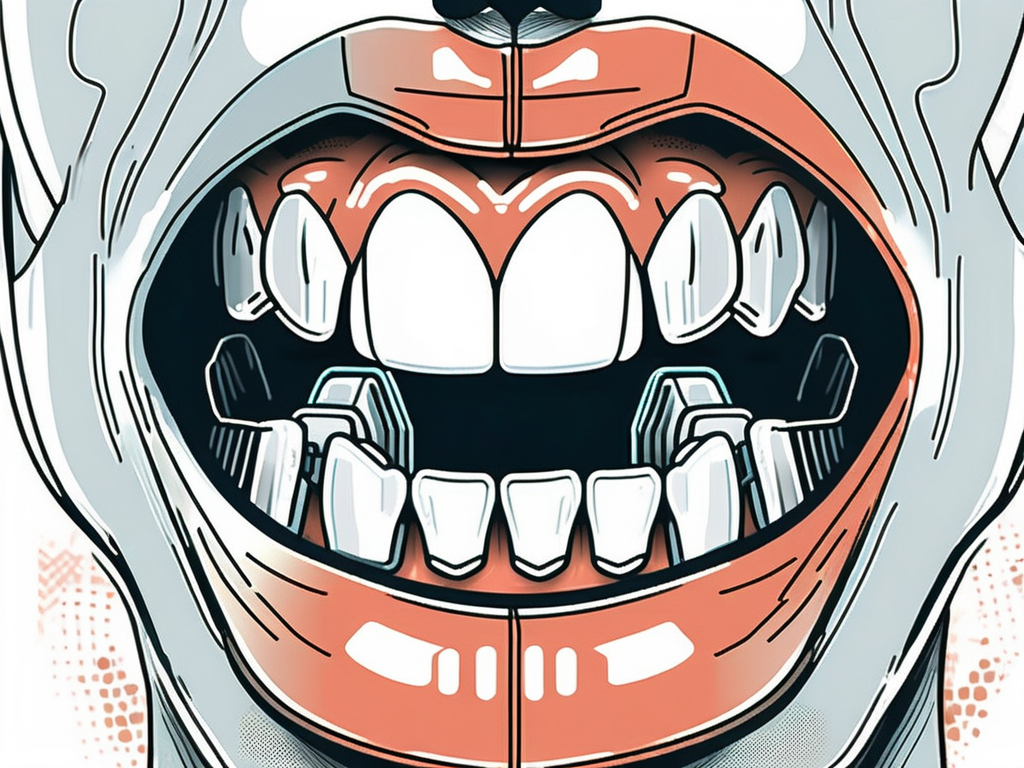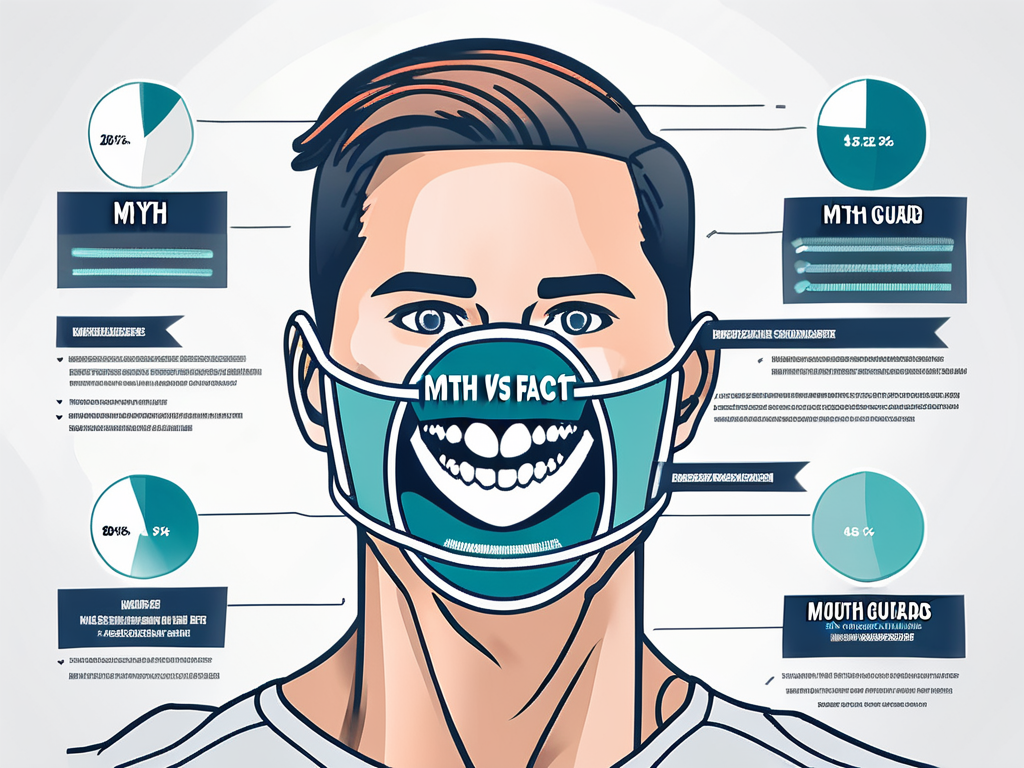Athletes engage in intense physical activities that put their bodies at risk of injury. Among the many safety precautions, wearing a mouth guard is often overlooked. However, understanding the importance of mouth guards and their role in sports is crucial for every athlete. This article will explore the various reasons why every athlete should wear a mouth guard and debunk common myths surrounding their usage.
Understanding the Importance of Mouth Guards
Mouth guards play a vital role in protecting athletes from dental and facial injuries. The forces endured during sports can lead to broken teeth, jaw fractures, and soft tissue damage. By wearing a mouth guard, athletes create a cushioning effect that absorbs and distributes the impact forces, minimizing the risk of injuries.

Moreover, mouth guards are not only crucial for protecting teeth and jaws but also for safeguarding the soft tissues inside the mouth. In the absence of a mouth guard, a blow to the face can result in lacerations to the lips, cheeks, or tongue, leading to significant pain and potential scarring. The mouth guard acts as a barrier that reduces the chances of such injuries, ensuring overall oral health for athletes.
The Role of Mouth Guards in Sports
Mouth guards act as a barrier between the upper and lower teeth, preventing them from clashing together during physical contact. They reduce the likelihood of tooth fractures, dislocations, or even complete tooth loss. Additionally, mouth guards can help prevent jaw fractures by absorbing and dissipating the forces applied during impacts.
Furthermore, mouth guards contribute to enhancing athletic performance by providing a sense of security and confidence to the wearer. Athletes who feel protected are more likely to perform at their best without the fear of potential injuries looming over them. This mental reassurance can make a significant difference in their focus and gameplay, ultimately leading to better results on the field or court.
Health Risks Associated with Not Wearing a Mouth Guard
The decision not to wear a mouth guard exposes athletes to numerous health risks. Besides the potential dental injuries already mentioned, athletes may experience concussions or other head traumas as a result of the forces transmitted from the jaw to the skull. Furthermore, an injury to the jaw joint could lead to temporomandibular joint disorder (TMJ), causing pain, difficulty in chewing, and even chronic headaches.
It is essential for athletes to recognize that the benefits of wearing a mouth guard extend beyond dental protection. The holistic approach to safeguarding oral health and overall well-being through the use of a mouth guard cannot be overstated. Investing in this simple yet effective piece of protective gear can make a significant difference in not only preventing injuries but also in promoting a sense of security and confidence during sports activities.
The Science Behind Mouth Guards
Understanding how mouth guards protect your teeth and jaw can strengthen the athlete's commitment to wearing one during sports activities.

When it comes to protecting your teeth and jaw during sports activities, mouth guards play a crucial role in minimizing the risk of injuries. By cushioning the impact of blows to the face, mouth guards act as a barrier between your teeth and the external force, absorbing and dispersing the energy to prevent it from causing damage. This not only safeguards your teeth from fractures and dislodgements but also helps in reducing the chances of jaw fractures and soft tissue injuries.
How Mouth Guards Protect Your Teeth and Jaw
Mouth guards are designed to absorb and dissipate forces through the material they are made of. The impact forces are spread over a larger surface area, reducing the pressure on any specific tooth or jawbone. This significantly lowers the risk of dental and jaw injuries that could otherwise occur in the absence of a mouth guard.
Moreover, mouth guards also act as a shock absorber, lessening the transmission of forces that could potentially lead to concussions. By providing a cushioning effect, mouth guards help in stabilizing the head and neck region, thereby reducing the risk of severe head injuries during high-impact sports.
The Material and Design of Mouth Guards
Mouth guards are typically made of durable and flexible materials, such as ethylene vinyl acetate (EVA) or polyolefin. These materials are capable of withstanding significant forces without sacrificing comfort. Furthermore, mouth guards come in a variety of designs, including options for different sports and levels of impact intensity. It is essential to choose the right type of mouth guard suited for the specific sport to ensure maximum protection.
Additionally, advancements in technology have led to the development of custom-fit mouth guards that offer superior protection and comfort. These personalized mouth guards are molded to fit the athlete's teeth and jaw structure, providing a snug and secure fit that enhances performance and protection. By investing in a custom mouth guard, athletes can ensure optimal coverage and support, reducing the likelihood of injuries and enhancing their overall athletic experience.
Different Types of Mouth Guards
When it comes to mouth guards, athletes have several options to choose from, depending on their preferences and needs.
Protecting your teeth during sports activities is crucial for maintaining oral health and preventing injuries. Mouth guards serve as a barrier between your teeth and potential impacts, reducing the risk of fractures, chips, and other dental trauma.
Custom-Fitted Mouth Guards
Custom-fitted mouth guards are considered the gold standard in mouth guard protection. These guards are meticulously crafted by dental professionals who take precise impressions of the athlete's teeth. The resulting mouth guard is tailored to the individual's unique dental structure, offering superior fit, comfort, and protection.
Custom-fitted mouth guards are ideal for athletes involved in high-impact sports or those with orthodontic appliances, as they provide the highest level of customization and security.
Boil and Bite Mouth Guards
Boil and bite mouth guards offer a convenient middle ground between custom-fitted and stock mouth guards. These guards are readily available in sporting goods stores and can be easily customized at home. By immersing the mouth guard in hot water to soften the material, athletes can create a semi-custom fit by biting into the guard and allowing it to mold to their teeth.
While boil and bite mouth guards may not offer the same level of precision as custom-fitted guards, they provide better protection and comfort compared to stock mouth guards. This versatility makes them a popular choice among amateur athletes and those looking for a balance between affordability and effectiveness.
Stock Mouth Guards
Stock mouth guards are the most basic and affordable option available on the market. These guards come pre-formed in standard sizes and are ready to wear without any adjustments. However, due to their generic shape, stock mouth guards often provide limited protection and may not fit securely, leading to potential discomfort and decreased effectiveness.
Athletes who opt for stock mouth guards should be aware of the compromises in fit and protection they entail, especially when participating in contact sports or activities with a high risk of dental injuries.
The Right Way to Wear and Care for Your Mouth Guard
It is not enough to simply wear a mouth guard; proper fitting, care, and maintenance contribute to its effectiveness and longevity.
When it comes to wearing a mouth guard, not only does it protect your teeth during physical activities, but it can also help prevent concussions by absorbing and dispersing the impact of a blow to the face. This is especially crucial in contact sports such as football, boxing, and hockey.
Ensuring a Proper Fit for Maximum Protection
A well-fitted mouth guard should cover all the teeth, providing optimal protection to the entire oral cavity.
Furthermore, a properly fitted mouth guard should not impede your ability to breathe or speak clearly. It should feel snug against your teeth and gums without being too tight or loose, ensuring both comfort and protection.
Cleaning and Storing Your Mouth Guard
Mouth guards should be cleaned thoroughly after each use to prevent bacteria growth. Brushing with a toothbrush and rinsing with cold water is sufficient for daily maintenance. Additionally, it is important to store the mouth guard in a well-ventilated case, away from direct heat or sunlight, to maintain its shape and integrity.
Regularly inspect your mouth guard for any signs of wear and tear, such as tears, holes, or a loose fit. If you notice any damage, it is crucial to replace the mouth guard immediately to ensure continued protection for your teeth and mouth. Remember, a well-maintained mouth guard not only safeguards your oral health but also promotes overall well-being during physical activities.
Debunking Common Myths About Mouth Guards
Despite the significant benefits of wearing mouth guards, there are often misconceptions and concerns that discourage athletes from using them.

Misconceptions About Comfort and Performance
Contrary to popular belief, mouth guards do not hinder speech or breathing during physical activities. With proper fit and adjustment, athletes can comfortably communicate and perform at their best while wearing a mouth guard.
Addressing Concerns About Cost and Accessibility
While custom-fitted mouth guards may require a higher upfront investment, they offer superior protection and durability, making them cost-effective in the long run. Furthermore, boil and bite mouth guards provide a reasonable alternative, readily available at sporting goods stores without the need for professional dental services.
In conclusion, every athlete should prioritize wearing a mouth guard to minimize the risk of dental and facial injuries. The science behind mouth guards demonstrates their ability to protect teeth and jaw, and various types of mouth guards cater to different preferences. Proper fitting, care, and maintenance ensure maximum effectiveness and longevity. Debunking common myths and addressing concerns surrounding mouth guards encourages athletes to embrace this essential protective gear. Remember, wearing a mouth guard is a small but significant step towards prioritizing safety in sports.













